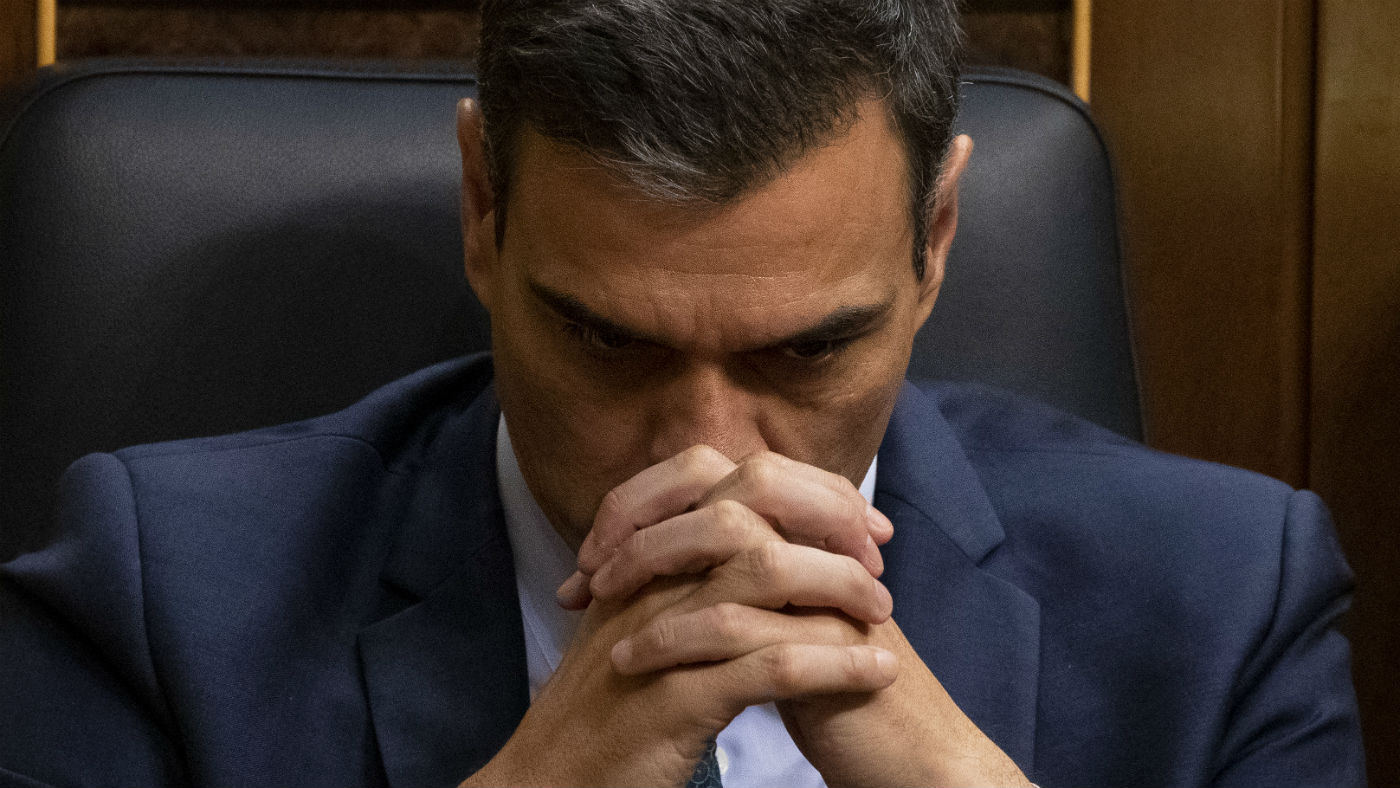Is Spain heading to the polls again?
Country could be set for fourth vote in four years after prime ministers fails to agree government

A free daily email with the biggest news stories of the day – and the best features from TheWeek.com
You are now subscribed
Your newsletter sign-up was successful
Spain could be heading for its fourth general election in as many years, after the country’s acting prime minister failed to construct a ruling coalition that could command a majority in parliament.
In elections in April, Pedro Sanchez’s Socialist party (PSOE) emerged with the most seats in parliament but well short of an overall majority. This left it scrambling to gain the support of left-wing anti-austerity Podemos and other smaller parties to secure enough votes to form a government.
“Spain has turned increasingly ungovernable with three elections in four years,” says Bloomberg. “The battle-scarred economy is finally emerging from the ravages of the financial crisis but the country remains in a state of deep of angst over the unresolved Catalan issue. Voters are restless and the two-party system appears broken in a fragmented landscape with populists to the right and left”.
The Week
Escape your echo chamber. Get the facts behind the news, plus analysis from multiple perspectives.

Sign up for The Week's Free Newsletters
From our morning news briefing to a weekly Good News Newsletter, get the best of The Week delivered directly to your inbox.
From our morning news briefing to a weekly Good News Newsletter, get the best of The Week delivered directly to your inbox.
Having failed to receive an absolute majority (176) of parliament to be confirmed as prime minister on Tuesday, Sanchez needed just a simple majority yesterday but admitted before the vote an agreement had not been possible.
The BBC reports that Sanchez and Podemos’s leader, Pablo Iglesias, “have tried to find common ground for the past three months and tensions spilled into the open during a debate at the start of the week, when Mr Iglesias accused the caretaker prime minister of offering only ‘cosmetic’ roles”.
At the weekend Iglesias agreed to step aside as Podemos leader after Sanchez accused him of being the main obstacle to forming a coalition, “but any hope that Sanchez would respond by offering Podemos senior ministerial positions failed to materialise”, reports The Guardian.
The party rejected the offer to run two new ministries of youth and housing, as well the vice-presidency for Irene Montero, the Podemos number two and Iglesias’s partner, on the grounds that the posts carry no executive power, and were merely “decorative”, “inexistent or empty”.
A free daily email with the biggest news stories of the day – and the best features from TheWeek.com
Their demand for key posts in government has in turn been described as “unacceptable” by the Socialists, with the party’s acting Deputy Prime Minister Carmen Calvo claiming Podemos “have literally asked us to give them the government” rather than form a coalition together.
“Disagreements over how to deal with secessionist sentiment in Catalonia — where the regional government failed in an unconstitutional independence bid in 2017 — have further complicated relationships between PSOE and Podemos”, says Ian Mount in the Financial Times.
Earlier this year a group of Catalan politicians involved in the secession bid were put on trial for rebellion. With a verdict expected within months, Mount says “Sanchez has wanted to appear to be taking a tougher line on Catalonia than Mr Iglesias”.
He now has two more months as caretaker to find a solution. While he has not said what his next steps will be, Reuters reports “if he decides against a further attempt or he is unsuccessful, a repeat election will be held on 10 November, Spain’s fourth in as many years”.
It “adds an element of uncertainty for a Spanish economy that’s on track to outpace every Group of Seven country this year apart from the US”, says Bloomberg.
However, “as we get closer to September, as the distrust between the PSOE and Podemos grows, as the sentence in the Catalan separatist trial comes nearer, forming a government gets more complicated,” Pablo Simon, a professor of politics at Madrid’s Carlos III University said.
Even if they do manage to form a coalition, they will still be short of a parliamentary majority, which means they will need the support of smaller parties, “raising the question of how much the new government would be able to achieve”, says Euronews.
Elliott Goat is a freelance writer at The Week Digital. A winner of The Independent's Wyn Harness Award, he has been a journalist for over a decade with a focus on human rights, disinformation and elections. He is co-founder and director of Brussels-based investigative NGO Unhack Democracy, which works to support electoral integrity across Europe. A Winston Churchill Memorial Trust Fellow focusing on unions and the Future of Work, Elliott is a founding member of the RSA's Good Work Guild and a contributor to the International State Crime Initiative, an interdisciplinary forum for research, reportage and training on state violence and corruption.